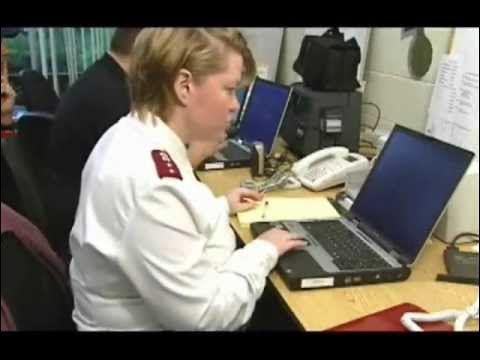HPSC FSO [L-04] Powers & Function of Food Safety Officer | Responsibility of FSO | HPSC FSO Classes
Summary
TLDRThis video outlines the role, functions, and responsibilities of a Food Safety Officer (FSO) within the food safety regulatory system. The FSO is responsible for collecting food samples, ensuring their proper handling and custody, conducting surveillance, and supporting food safety plans at local levels. They have the authority to seize food items found in violation of safety standards and assist in the preparation of safety protocols. The video emphasizes the importance of hands-on training and knowledge retention for effective job performance, providing viewers with key insights into the regulatory framework governing food safety.
Takeaways
- 😀 FSOs (Food Safety Officers) assist the designated officer, who reports to the Commissioner of Food Safety, forming a hierarchical structure in food safety management.
- 😀 FSOs are responsible for collecting food samples for various purposes such as legal, surveillance, and research purposes.
- 😀 Food samples must be kept in safe custody to avoid any changes, ensuring integrity for testing or analysis.
- 😀 FSOs procure samples from food business operators, pay for them, and send them for analysis to relevant laboratories.
- 😀 FSOs can seize food articles that violate food safety regulations or the provisions of the Food Safety and Standards Act.
- 😀 FSOs facilitate the preparation of food safety plans for Panchayats and Municipalities according to established guidelines.
- 😀 FSOs have the authority to detain imported food packages that are suspected to contain prohibited or non-compliant items.
- 😀 FSOs divide food samples into parts, seal them, and send them for analysis, ensuring proper documentation and adherence to protocols.
- 😀 The role of FSOs includes ensuring compliance with food safety regulations and taking necessary actions like issuing notices or seizing food items.
- 😀 For exam preparation, it's helpful to create short notes from the video and additional study materials provided to reinforce key concepts.
- 😀 FSOs undergo training post-appointment, where they learn in-depth details of their responsibilities and functions within the food safety system.
Q & A
What is the primary responsibility of a Food Safety Officer?
-The primary responsibility of a Food Safety Officer is to collect food samples for legal, surveillance, and research purposes, ensuring that they are kept in secure custody for accurate testing and analysis.
Why is it important to maintain the custody of food samples after collection?
-Maintaining the custody of food samples is crucial to prevent any contamination or changes in the samples, ensuring that they remain intact for accurate testing and legal purposes.
What happens if a Food Safety Officer finds a violation of food safety regulations?
-If a violation is found, the Food Safety Officer has the authority to seize any food products involved in the contravention of the regulations.
What is the process after a Food Safety Officer collects a food sample?
-After collecting a food sample, the officer divides it into different parts and sends one portion to a primary laboratory for analysis. The officer ensures proper packaging, sealing, and labeling of the sample.
What are the different purposes for which food samples are collected by a Food Safety Officer?
-Food samples can be collected for various purposes, including legal testing, surveillance, research, and surveys to monitor food safety and quality.
What powers does a Food Safety Officer have regarding food imports?
-A Food Safety Officer has the authority to inspect imported food products, ensuring that they comply with food safety regulations. They can detain food items that are suspected to be prohibited or non-compliant with the law.
How does a Food Safety Officer contribute to food safety management at local levels?
-A Food Safety Officer helps local bodies such as panchayats and municipalities in preparing food safety management plans, ensuring that food safety practices are implemented effectively in both urban and rural areas.
What is the role of a Food Safety Officer in monitoring food safety at the import level?
-The Food Safety Officer is responsible for monitoring the import of food items, ensuring they meet the required safety standards. If any item is found to be non-compliant or prohibited, the officer has the authority to detain or seize it.
What is the significance of the Food Safety Officer's involvement in food safety at the national and international level?
-The Food Safety Officer plays a key role in adhering to both national and international food safety regulations, assisting in the implementation of food safety plans and monitoring food imports to protect public health and safety.
What kind of documentation or reporting does a Food Safety Officer engage in?
-The Food Safety Officer regularly sends reports about the food safety conditions in their respective regions to the Commissioner of Food Safety and the Executive Officer of FSSAI, helping in the management and oversight of food safety policies.
Outlines

This section is available to paid users only. Please upgrade to access this part.
Upgrade NowMindmap

This section is available to paid users only. Please upgrade to access this part.
Upgrade NowKeywords

This section is available to paid users only. Please upgrade to access this part.
Upgrade NowHighlights

This section is available to paid users only. Please upgrade to access this part.
Upgrade NowTranscripts

This section is available to paid users only. Please upgrade to access this part.
Upgrade Now5.0 / 5 (0 votes)





